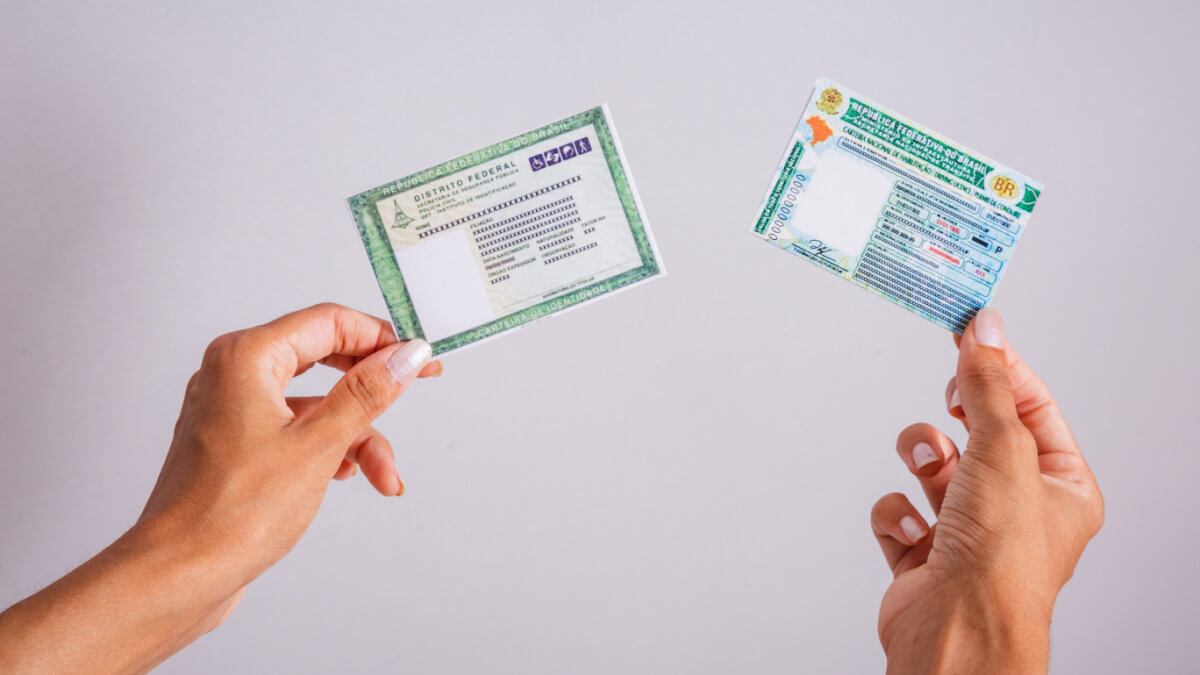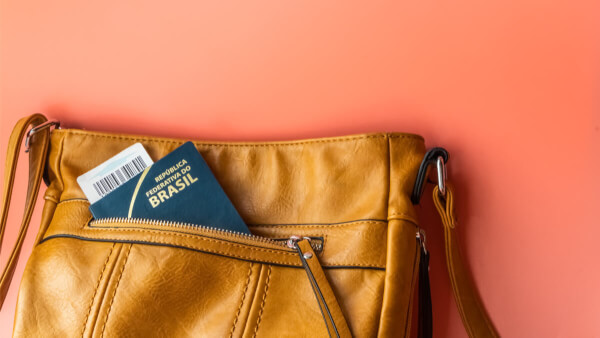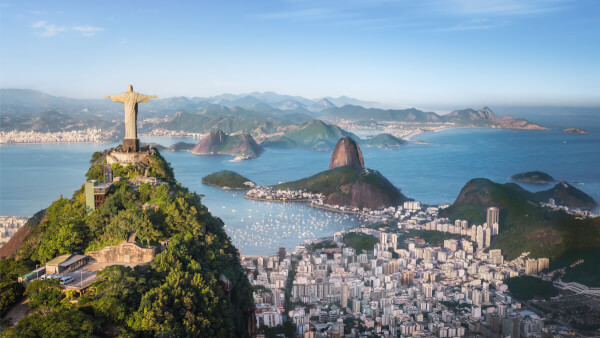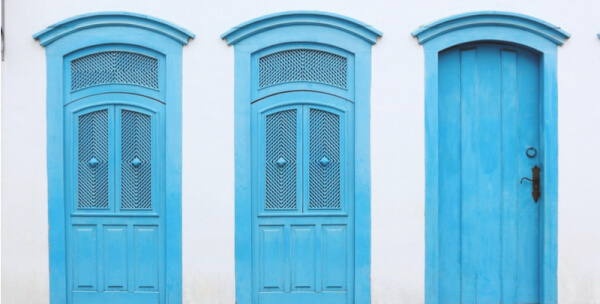Understanding Brazilian citizenship: how to become a Brazilian citizen
Discover the different ways to acquire Brazilian citizenship, including by descent, marriage, naturalization, and residency. Uncover the benefits and responsibi

If you’re one of the many people considering a new life as an expat in Brazil, you’ll need a CPF number. This is the identifier issued by the Receita Federal - the inland revenue service in Brazil. Without a CPF there are many basic things you’ll struggle to arrange - getting a cell phone or opening a bank account for example.
This guide walks through everything you need to know about how to apply for a CPF number in Brazil, with a quick look at Wise as a smart way to send and convert money from USD to BRL with low fees and the mid-market rate¹.
Banks and money transfer providers often add a markup to the exchange rate you’ll get to convert USD to BRL, which can be hard to see, but which pushes up the costs of your transaction nonetheless.
Wise isn’t a bank, but a money service business (MSB) - so the way it works, and the costs to the customer, are different. To keep fees down, Wise has invested in smart new technology connecting local bank accounts all around the world, allowing customers to send fast transfers to 160+ countries with low charges. Currency conversion uses the mid-market rate, with no hidden fees to worry about, too.
If you’re making or receiving payments from abroad frequently, you might also benefit from a Wise account. The Wise Account is perfect for travelers, expats and people with an international lifestyle, as you can hold a balance in any of over 40 different currencies, and switch between them easily using the mid-market rate.
You can receive payments conveniently, too, in major currencies including euros, British pounds and Australian dollars, as well as US dollars — and even get a linked debit card for day to day spending.
Now, back to what you came here to read.
A CPF number is the identifier that proves you have been entered into the Cadastro de Pessoas Físicas² (Natural Persons Register) in Brazil.
It’s an 11 digit number, issued by the Brazilian inland revenue service, and is pretty much essential for life in Brazil. It’s issued to all Brazilian citizens, and residents - even if they’re expats.
You need a CPF to pay your taxes - but you also need one for lots of basic transactions - which might come as a shock if you’re unfamiliar with the system. Buying plane tickets or getting any sort of monthly contract - for a mobile phone, gym or cable, for example - all require a valid CPF number.
You also need a CPF number if you want to send money to someone based in Brazil. Luckily it’s pretty easy to get your CPF number, even if you’re an expat in Brazil as a foreigner, or applying from abroad via a consulate or embassy³.
| A CPF usually looks like this: XXX.XXX.XXX-XX |
|---|
A CPF number is only issued once. That means that you have to look after your number, or you'll struggle to do anything other than basic transactions in Brazil.
Bear in mind that CPF numbers are no longer issued on a physical card. Instead, you’ll need to maintain a digital record of your number - keep it safe!
| If you’re struggling, your CPF number can be found in the following places: |
|---|
|
You’ll be asked for your CPF when you try to open a bank account, buy a property, make any investments, or buy a vehicle. In practice, this means that it can be very hard to get settled in Brazil until you have your CPF number arranged - simple things like arranging banking or utilities for your home could prove tricky.
It’s mandatory to get a CPF number under some circumstances - if you earn income in Brazil, if you want to apply for any government support in Brazil, or if you have certain assets like property or shareholdings there, for example. It’s worth taking professional advice if you’re unsure whether or not you need a CPF number as the list of reasons you might have to get one is pretty extensive.
You can get a CPF number either once you arrive in Brazil, or at your local consulate or embassy. Having a number issued outside of Brazil can take a month or so depending on the embassy, whereas getting your CPF card or certificate in Brazil should be relatively quick and simple to do.
If you’re a Brazilian citizen and were born there, the chances are that you have a CPF number already. Although they’re not automatically issued, many parents get the CPF number set up for their children while they’re still minors, to make life easier once they need to get a bank account or pay any taxes.
If you’re a naturalized Brazilian citizen, and for some reason have never had a CPF number, then you’ll have to follow the relevant process depending on whether you’re in Brazil or not at the time of application.
If you need help when applying for your CPF number, there are numerous agencies which will offer to help you, for a fee.
If you’re already in Brazil, the easiest way to get your CPF number arranged is apply online.
If you’d prefer to sort it out in person you’ll need to visit a branch of Banco do Brasil®, Caixa Econômica Federal® or a Correios (post office) agency.
If you use this method, there may be a small fee for your application. The fee can change so check at the time you’re applying for the most up to date information.
| You’ll have to upload or take along the following documents⁴: |
|---|
|
If you’re applying for a minor then you’ll also have to provide your own ID documents and prove your relationship to the child before your application can be processed.
Upload images of the paperwork when prompted during the online application - or take the documents along to the branch of Banco do Brasil, Caixa Econômica Federal or the Correios agency that is convenient for you⁶.
You can track the progress of your application using the status requirement request function on the inland revenue website. You’ll just have to enter the request code you were given, and a few details about where you applied to see how your application is doing.
If you’re applying from outside of Brazil, you’ll have to follow much the same process as set out above - but you’ll need to visit your local consulate or embassy to show your documentation. If you’re Brazilian but living outside of Brazil, you’ll also usually have to go to your local consulate to have a CPF issued.
Getting a CPF number is pretty much essential if you’re planning on being in Brazil for any length of time. There is some paperwork involved, but it shouldn’t be too tricky to do, and you can get it organized online - or in many different bank or post office branches once you’re there.
And once you have your CPF number, you can rest assured that day to day life will be much easier. Use this guide to make sure you can hit the ground running - and don’t forget to check out Wise too, as a smart way to send and spend BRL and 40+ other currencies.
Sources:
Sources checked on 02.02.2024
*Please see terms of use and product availability for your region or visit Wise fees and pricing for the most up to date pricing and fee information.
This publication is provided for general information purposes and does not constitute legal, tax or other professional advice from Wise Payments Limited or its subsidiaries and its affiliates, and it is not intended as a substitute for obtaining advice from a financial advisor or any other professional.
We make no representations, warranties or guarantees, whether expressed or implied, that the content in the publication is accurate, complete or up to date.

Discover the different ways to acquire Brazilian citizenship, including by descent, marriage, naturalization, and residency. Uncover the benefits and responsibi

Discover what it costs to live in Brazil, from housing and groceries to healthcare and transportation. Compare the cost of living across different cities.

Find everything you need to know about moving to Brazil in this handy guide.

Let’s face it, Brazil isn’t known for their world class education system. Ranked #32 in the world for their schools, the South American country has faced a...

Brazil is the largest country in South America, but most of the nation’s population lives in cities. In fact, about 82 of every 100 Brazilians reside in urban...

Lovers of relaxing beach days and wild nightlife alike dream of living in Rio de Janeiro. Known as one of the most famous cities in South America (if not the...